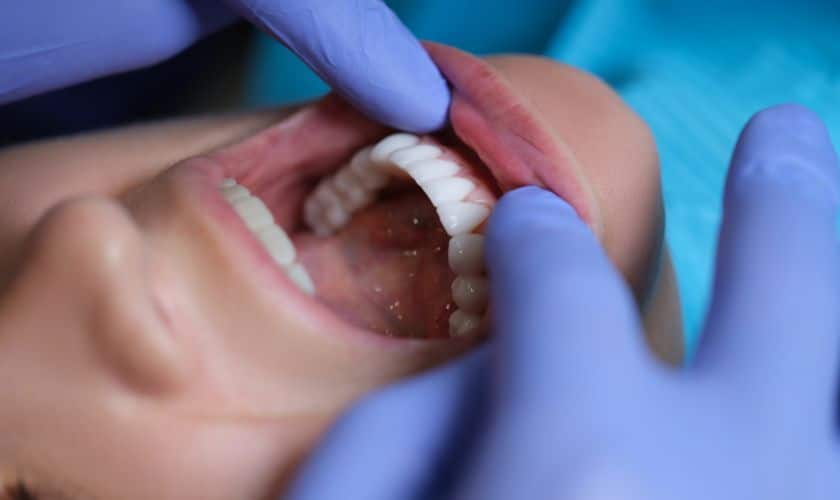Visit Diamond Lakes Dental Today Or Call 501-623-7113
Don’t Neglect Your Gums

The prevalence of periodontitis, although underreported, is a serious health concern among people in the United States. The link between periodontal disease and other systemic diseases is prevalent, and the number of diseases we know associated seems to be growing. The CDC reports that 47.2% of adults 30 and over suffer from periodontal disease, and that number rises to 70.1% of adults 65 years and older. While periodontal disease is not reversible, it is treatable. Like other diseases though, as periodontitis progresses, the more difficult and expensive treatment becomes. It is crucial to maintain good oral hygiene habits and regular dental checkups to catch this disease in its early stages.
Equally important in preventing periodontal disease is knowing the risk factors that predispose one to it. While some are straight forward like poor oral hygiene, smoking, and crooked teeth, others are less obvious. Things like old fillings that become defective, or bridges that no longer fit properly can be a catalyst to gum disease. Likewise, stress, heredity, underlying immunodeficiencies, pregnancy, hormonal changes, or dry mouth can all make one more susceptible to this disease.
The early stages of periodontal disease come in the form of gingivitis (swollen, irritated, tender gums that bleed easily). If addressed early, gingivitis is an easily reversible process. However, if left to progress, more advanced surgical procedures may be necessary to halt disease progression. Early signs and symptoms of periodontal disease include persistent bad breath or taste, red swollen or bleeding gums, sensitive teeth, loose teeth, changes in the way your teeth fit together, or changes in the way your partial denture may fit. Continued progression of periodontal disease can lead to loss of teeth and destruction of the jawbone, leaving loose infected tissue in its place.
If the loss of teeth was not enough to cause concern, the link between periodontitis and systemic health conditions should be. Harvard states that people with gum disease have two to three times the risk of having a heart attack, stroke, or other serious cardiovascular event. In a study done looking at cardiovascular disease and risk factors, the researchers concluded that “dental infections are the only risk factor outside the scope of classic coronary risk factors, which have shown independent association with the severity of adult coronary atherosclerosis”. Atherosclerosis refers to the deposition of plaques or fatty materials on the inside of blood vessels, which can lead to heart attack or stroke. Along with the increased risk of cardiovascular disease, recent studies have suggested that the principal bacteria associated with periodontitis (P. gingivalis) is associated with the presence of Alzheimer’s disease. A study found evidence of the bacteria in 96 percent of Alzheimer’s patients’ samples. Additionally, it has been shown that P. gingivalis increases the production of amyloid beta, a major component of the amyloid plaques that are characteristic of Alzheimer’s disease.
Although periodontal disease has frightening implications, it is something that can be managed. It is imperative that people maintain proper oral hygiene and regular checkups in order to catch the disease early. Call us at 501-623-7113 to schedule your checkup.
Works Cited
Centers for Disease Control and Prevention. (2013, July 10). Periodontal disease. Centers for Disease Control and Prevention. https://www.cdc.gov/oralhealth/conditions/periodontal-disease.html.
Gum disease and heart disease:
The common thread. Harvard Health. (2021, February 15). https://www.health.harvard.edu/heart-health/gum-disease-and-heart-disease-the-common-thread.
Kim, Jemin, and Salomon Amar. “Periodontal disease and systemic conditions: a bidirectional relationship.” Odontology vol. 94,1 (2006): 10-21. doi:10.1007/s10266-006-0060-6
Periodontology, A. A. of. (2019, January 28). Periodontal disease bacteria linked to alzheimer’s disease. Periodontal Disease Bacteria Linked to Alzheimer’s Disease | Perio.org. https://www.perio.org/consumer/alzheimers-and-periodontal-disease.




